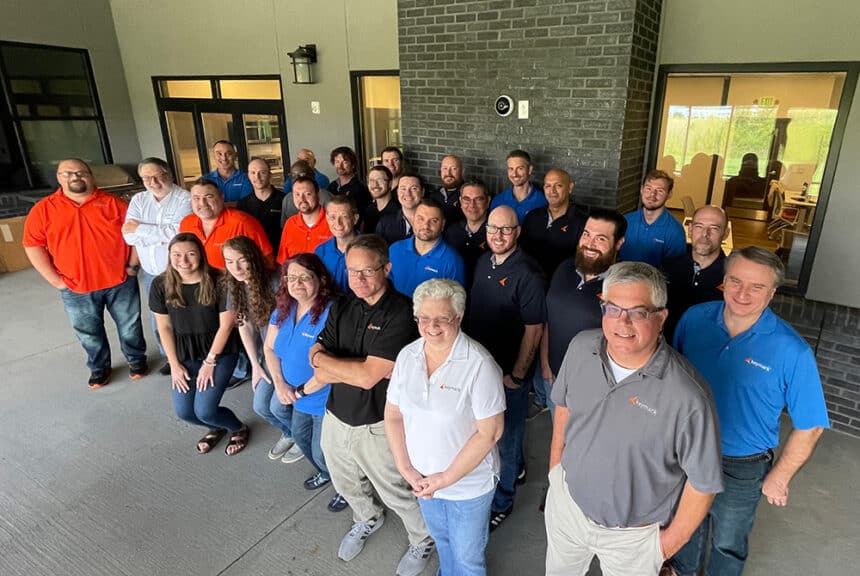Microsoft, Hyland and Google Make Big RPA Plays
Right now, many companies are looking to automate workflows and processes across their organization. And you can bet that big tech has had its eye on this trend. Like falling dominoes, RPA companies have been getting acquired or are joining forces with some of the traditional big names in technology.
This week, workflow software company, ServiceNow has announced plans to acquire India-based RPA startup, Intellibot.
This comes on the heels of Google’s announcement to partner with RPA provider Automation Anywhere to put robotic process automation (RPA) software behind its Apigee, AppSheet, and AI Platforms. Google’s release states, “RPA has become an integral part of businesses’ digital transformation efforts.”
The partnership will be available on Google Cloud, which Automation Anywhere has agreed to migrate its service to in exchange for being Google’s premier RPA provider.
Tech Giants Racing to Add RPA Offerings
RPA partnerships are “all the rage” right now. During the last year, Microsoft, Hyland and Google have all made big plays in the RPA space.
If you’re keeping a tally, in May 2020, Microsoft acquired Softomotive to add RPA capabilities to its offering, Microsoft Power Automate. Then in August, it was announced that Content Services leader, Hyland acquired German-based RPA provider Another Monday. In January 2021, SAP announced that it would be acquiring Signavio. And in March, Google is partnering with Automation Anywhere and ServiceNow announces it will be acquiring Intellibot.
This explosion of RPA partnerships brings a few questions to mind.
How are Tech Giants Using RPA?
So what does all of this mean, and how are these technology organizations planning to use the RPA technology?
- Google appears to be using low code RPA to strengthen its own product offerings. Users will now receive a more powerful tool, and be able to use Apigee, AppSheet, and AI Platform with low code or no code at all. RPA software will power these particular Google apps.
- Hyland is doing the same thing, having rebranded Another Monday to “Hyland RPA” and using it to fortify their OnBase ECM (enterprise content management) tool. OnBase users can tack RPA on to their ECM to make their OnBase automations even more powerful.
- Similarly, it seems that Microsoft is using its Softomotive acquisition to add features to its Power Automate platform, which automates tasks within the Windows platform.
- SAP says they will use Signavio’s Business Process Intelligence capabilities to further enhance their “RISE with SAP” package. According to SAP, “the offering helps companies perform a holistic business transformation that makes them resilient, agile and intelligent. It includes support for an accelerated move of core ERP processes to the cloud.”
- ServiceNow said in it’s press release that it will be using Intellibot’s RPA capabilities to extend their ServiceNow’s existing AI and ML, integrations, low‑code development, process mining, process automation, NLX, chatbot, and virtual agent capabilities.
So why RPA? And why is this happening right now?
Why RPA Right Now?
There are a variety of reasons as to why organizations are migrating toward automating their tedious and manual processes with RPA software. For one thing, RPA is a relatively inexpensive way to make a positive impact, particularly in the growing age of remote work. To see the value of an RPA investment, this RPA ROI Savings Calculator shows potential RPA users how quickly they could see the benefit of their investment. But what are the industry experts saying?
- Forrester: RPA and other AI subfields created jobs for 40% of companies in 2019. In this report, they also note that one tenth of startups now employ more digital workers than human ones.
- McKinsey: At least one third of activities could be automated in about 60% of occupations.
- Salesforce: 95% of IT leaders are prioritizing workflow automation, with 70% seeing the equivalent of more than 4 hours saved each week per employee.
These numbers are staggering. This type of adoption is going to be catalytic for any organization. And you better believe tech giants are taking note and seeing dollar signs.
One almost has to wonder why this is happening and whether these partnerships are good for the end user. Too often, we have seen large organizations try to diversify in a hurry so they can keep up with their competition. This tends to leave the actual users of the technology in the dust.
Are All RPA Vendors the Same?
Alan Pelz-Sharpe, founder and principal analyst at Deep Analysis responded to the announcement in a recent article released by Tech Target, stating: “Automation Anywhere compares well with the other major RPA vendors, but, in fairness, they all do much the same thing.”
We disagree.
Yes, in principle, RPA helps organizations to automate tedious, manual tasks. But in practice, categorizing all RPA providers as the same is like saying that “all cars drive, so therefore all cars are the same.”
Comparing Automation Anywhere to a company like Blue Prism is like comparing a Honda to a Ferrari. Sure, both have doors, windows, and an engine. But when you view and drive the cars, the two offer very different experiences.
When it comes to implementation, however, we could not agree more with Pelz-Sharpe’s statement.
He says: “The vendors provide the technology, but, ultimately, the success of an RPA project is dependent on partners and customers.”
The statement is well-put. Anyone can buy any RPA tool — but only when paired with the right strategic plan, internal buy-in and proper support will an RPA project be successful in the long haul.
Leaders Are Leaders for a Reason
To further the differentiation, global research firms and third-party analytics consistently rank top RPA providers, and year after year, Blue Prism, UiPath, Automation Anywhere, and WorkFusion find themselves as industry leading vendors.
KeyMark has done our own research into the comparison of RPA leaders, and we think you’ll find our RPA vendor comparison chart interesting.
What does all of this mean for businesses and organizations seeking to add RPA to their total automation solution?
Why is KeyMark’s Bet on Blue Prism?
 So often, organizations decide they want to use RPA software to automate their business processes before they have a plan. Businesses rush into the technology, without considering how their selected brand will scale to the rest of the organization. They neglect to consider things like RPA vs. RDA or whether they need a static bot that lives on a desktop or a dynamic bot that lives in the cloud.
So often, organizations decide they want to use RPA software to automate their business processes before they have a plan. Businesses rush into the technology, without considering how their selected brand will scale to the rest of the organization. They neglect to consider things like RPA vs. RDA or whether they need a static bot that lives on a desktop or a dynamic bot that lives in the cloud.
Because KeyMark has aligned itself with Blue Prism as a Silver-Certified Partner, we can share our perspective on their organization. Blue Prism, who actually coined the term “robotic process automation,” has a deep-seeded philosophy that RPA requires vision. Customers who want to see a major organizational upgrade need to map out a plan that includes connections to multiple core systems. Our customer, Dot Foods, implemented a Blue Prism RPA solution and they now have an automation steering committee to pinpoint where their RPA solution will go next.
Blue Prism competitors like UiPath and Automation Anywhere offer cheaper bots and single processes to hook customers quickly, but we firmly believe that customers need a well-thought-out approach.
RPA’s Impact on the Tech World
RPA is being rapidly adopted by Big Tech to fortify their own offerings. Don’t be surprised if you see others in the near future making similar alliances. The technology is here for the long haul, and creating an automation plan for your business is one of the best places to start.
If you’re considering RPA for your own organization, contact KeyMark today to get the conversation started.a com



